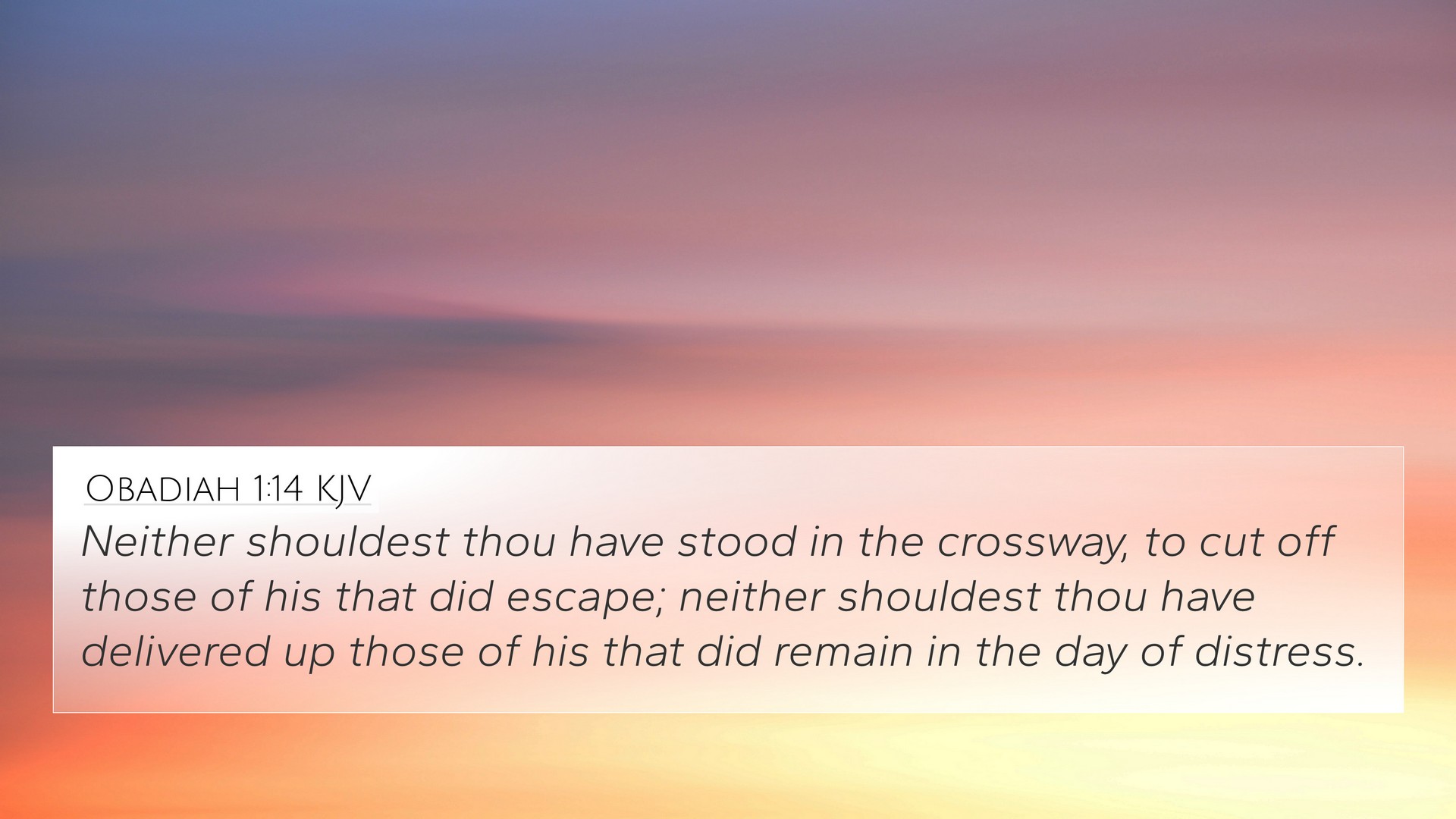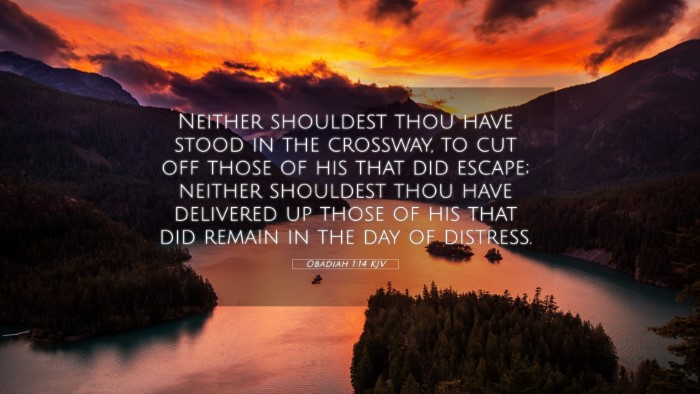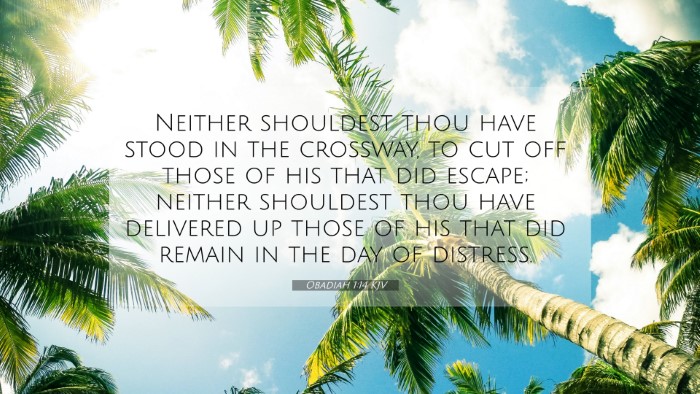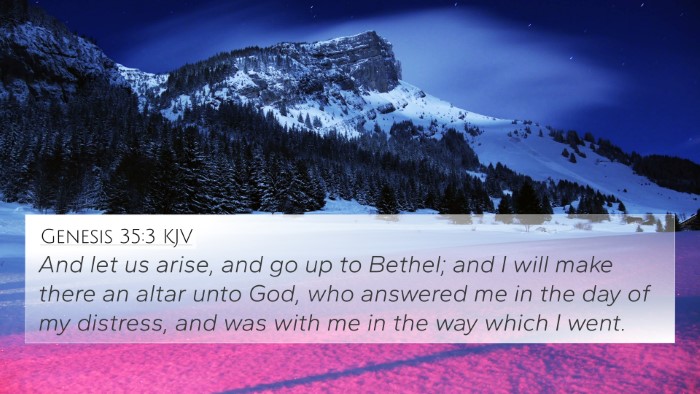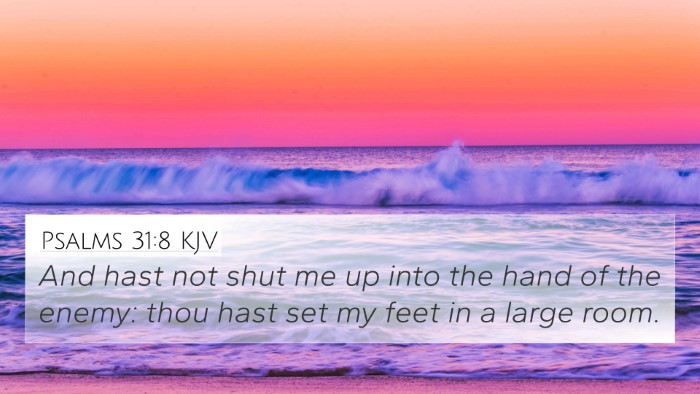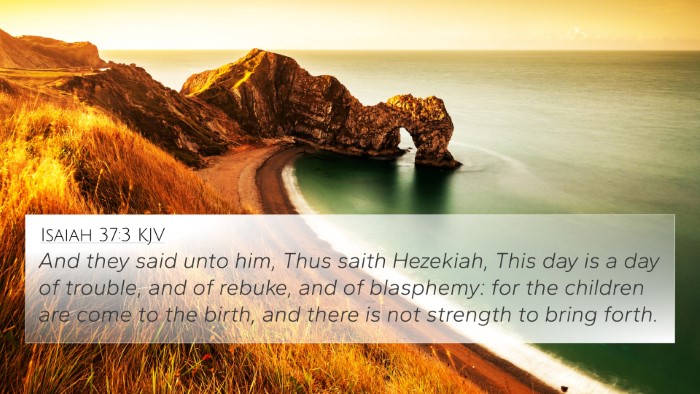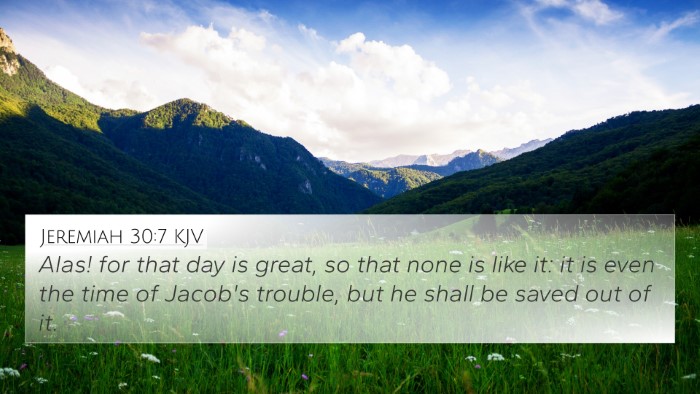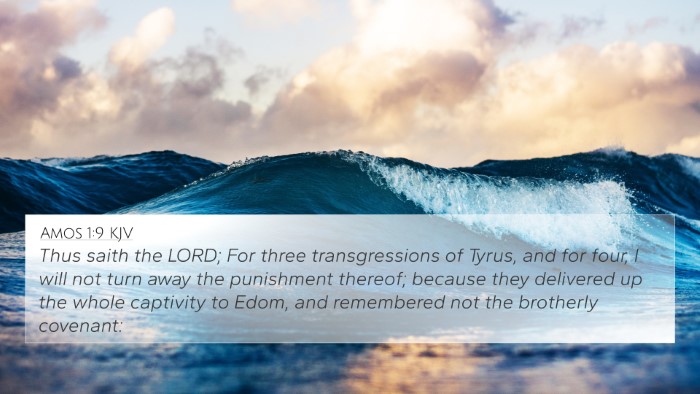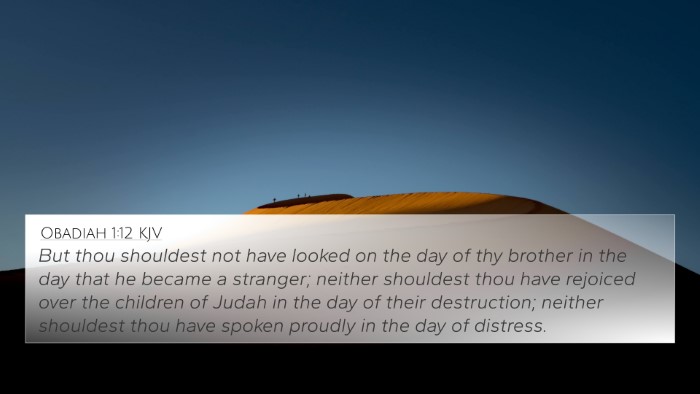Understanding Obadiah 1:14
Bible Verse: Obadiah 1:14 - "And stoodest not in the crossway, to cut off those of his that did escape; and delivered up those of his that did remain in the day of distress."
Summary of Meaning
Obadiah 1:14 addresses the actions of Edom during the calamity that befell Israel. It expresses a condemnation of Edom for its failure to aid Israel in their time of distress, highlighting a significant moral and ethical lapse.
Commentary Insights
This verse is often discussed among biblical scholars and commentators, such as Matthew Henry, Albert Barnes, and Adam Clarke. Below are summarized insights from their writings:
-
Matthew Henry:
Henry emphasizes that Edom's inaction in a moment of crisis reflects selfishness and betrayal, especially given their kinship to Israel. Instead of providing assistance, they took advantage of the situation, undermining the bonds of brotherhood.
-
Albert Barnes:
Barnes interprets the phrase "stoodest not in the crossway" as a metaphor for failing to protect those in danger. He notes that instead of guarding those who are fleeing, Edom allowed harm to befall them, prioritizing their own interests over compassion.
-
Adam Clarke:
Clarke elaborates on the consequences of Edom's actions, suggesting that such betrayal leads to dire repercussions not only for Edom but also as a broader lesson on the importance of supporting community during trials.
Thematic Connections
The thematic implications of Obadiah 1:14 resonate throughout the Bible, illustrating principles such as humanitarian support, justice, and moral responsibility. The failure of Edom serves as a cautionary tale against negligence in times of trouble.
Bible Verse Cross-References
This verse can be linked to several other scriptures that echo similar themes:
- Proverbs 24:11-12: Urges readers to rescue those being led to death and reminds them of accountability.
- Isaiah 63:1-6: Discusses God's vengeance against enemies and the theme of divine justice involving nations.
- Lamentations 4:21-22: Speaks of Edom's pride and eventual judgment, aligning with the concepts in Obadiah.
- Matthew 25:40: Highlights the importance of doing good to others, as actions towards the 'least of these' are considered actions towards Christ.
- Luke 10:30-37: The parable of the Good Samaritan illustrates the imperative to help those in need, even if they are viewed as enemies.
- Amos 1:11: Addresses the sins of Edom, reinforcing the theme of judgment against nations for their actions.
- Jeremiah 49:7-22: Contains prophecies against Edom, discussing their coming judgment and the reasons behind it.
Connecting Themes and Lessons
The overarching lesson from Obadiah 1:14 urges believers to reflect on how they respond to those in distress. It underscores the necessity of intervention in moments of crisis, promoting a culture of support and emphasizing the consequences of neglect.
Tools for Bible Cross-Referencing
For those seeking to deepen their understanding of connections between biblical texts, consider utilizing the following:
- Bible Concordance: A tool for finding biblical terms and their occurrences throughout scripture.
- Bible Cross-Reference Guide: Resources that outline links between verses thematically and contextually.
- Cross-Reference Bible Study: Methods for investigating the interconnections among varied scriptures, facilitating a richer understanding.
Practical Application
In practical terms, analyzing Obadiah 1:14 with cross-referencing tools allows for a deeper comprehension of the moral imperatives expected of us as followers of faith. It invites individual reflection on how one engages with community obligations.
Final Thoughts
The essence of Obadiah 1:14 remains relevant today as it reminds readers of the importance of solidarity and compassion. The consequences of inaction in times of crisis are not merely punitive but serve as a reminder of our interconnectedness.
